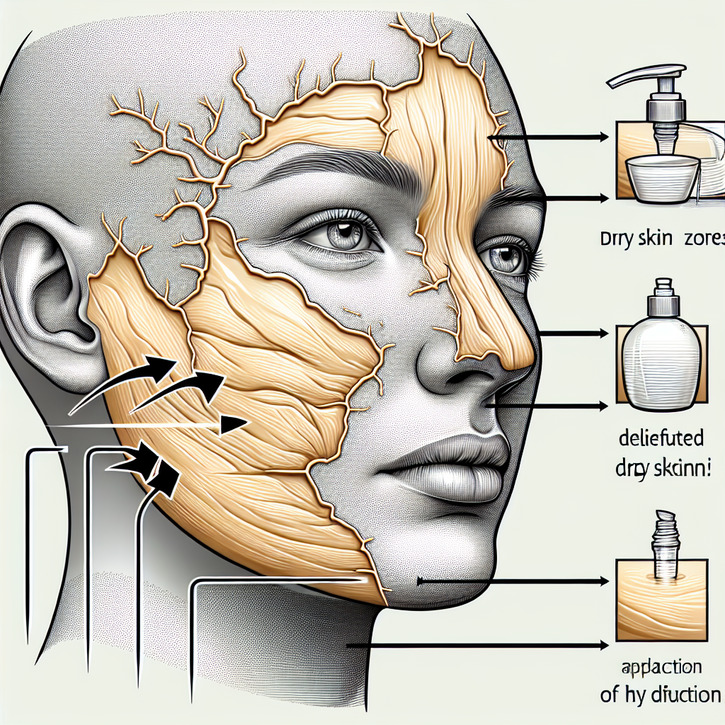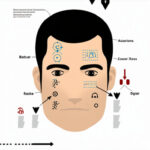Effective Treatments for DRY SKIN HAIR LOSS

Introduction to Dry Skin Hair Loss
Ever wonder why your hair seems to be thinning out, even though you’re doing everything right? Dry skin hair loss is a sneaky issue that many of us face without fully grasping what’s really going on. In simple terms, it all boils down to the delicate interplay between your scalp’s health and overall moisture levels. When your skin dries out, those vulnerable hair follicles suffer, which can eventually lead to lighter, thinner hair. Today, we’re going to peel back the layers on this condition, exploring not just the physical symptoms but also the lifestyle and environmental factors that might be playing a part. So, let’s dive in and get a clear picture of what dry skin hair loss is all about—no fancy jargon, just real talk and solid advice.
Understanding how dry skin ties into hair loss is crucial—it’s really the starting point for tackling the problem before it gets out of hand. We often think of our skin and hair as two very separate things, but they’re actually more like long-lost twins. If your scalp isn’t getting enough moisture, your hair can become brittle, leading to early hair loss. By spotting those underlying issues early on, you can slow down any further damage and set the stage for a healthy head of hair. In this post, we’re breaking down everything you need to know, from the causes and symptoms to practical treatments, all backed by hands-on insights.
It’s important to know what’s causing the problem in the first place. Dry skin hair loss isn’t usually a one-trick pony—it can be triggered by a range of factors, from harsh weather like windy or cold conditions to hormonal changes or even everyday habits that strip your skin’s natural moisture. These triggers can turn your scalp into a less-than-friendly environment for hair growth. Catching these issues early on is not just a nice-to-have; it’s critical for making sure the damage doesn’t snowball into something more serious. Early detection makes it so much easier to apply the right treatments and reclaim that balanced, nourished scalp.
One recurring theme here is the need to notice those subtle early signs. Often, a change in hair density or a rough feeling on the scalp is written off as a passing nuisance. But those hints could be your body’s early warning signals of something deeper going on. With a bit of care and the right treatment, you can get ahead of the curve, nurturing your hair back to health. Throughout this article, we’ll share straightforward strategies that not only target the symptoms but dig into the root causes to help you make lasting changes.
Key Causes of Dry Skin Hair Loss
Environmental and Weather Factors
Our everyday environment can have a huge impact on the health of our hair and skin. Extreme weather—think gusty winds, scorching heat, or biting cold—can strip your skin of its natural moisture, leaving it dry and irritated. For example, low humidity in winter or spending too much time under the summer sun can weaken your scalp’s natural defenses. Add to that the way temperature swings can mess with your skin’s oil production, and you’ve got a recipe for hair follicle havoc. Being aware of these environmental triggers means you can take simple steps like using protective hair care products to guard against damage.
Watch Your Hair Come Back FASTER Than You EVER Dreamed Possible

WITHOUT Expensive Medications, Lasers, or Painful Surgeries!
Try this at homeGenetic and Hormonal Influences
Then there’s the genetic and hormonal angle, which can be just as tricky. Your family history might already set you up for a certain level of natural oil production—or lack thereof. Plus, hormonal changes, especially those linked to aging, menopause, or stress, can seriously upset the balance needed for luscious hair. When these factors team up, they can leave your hair brittle and more prone to thinning over time. This makes it all the more important to consider targeted treatments and lifestyle tweaks if you suspect your genetics or hormones are at play.
Impact of Lifestyle Choices
Our everyday choices around diet, hair care habits, and even how often we wash our hair can have a huge effect on your scalp’s moisture levels. Poor nutrition, overusing heat styling tools, or relying on harsh shampoos can strip your scalp of vital natural oils, paving the way for dryness and subsequent hair loss. Add a little stress or an occasional indulgence in substance use to the mix, and you’ve got a cycle that’s hard to break. The good news? Once you pinpoint these habits, you can make smarter choices—like switching to gentler products or incorporating stress management techniques—that really make a difference.
Recognizing Dry Skin Hair Loss Symptoms
Early Warning Signs of Dry Skin Hair Loss
It’s all about catching things early. You might start noticing little signs like an itchy or flaky scalp that you shrug off as a temporary irritation. But over time, these small issues can lead to more noticeable problems like thinning hair or increased shedding. Since these symptoms tend to sneak up on you, staying alert is key to nipping any serious damage in the bud. Keeping an eye on your scalp’s condition can help you spot trouble before it really takes hold.
Diagnostic Approaches and Tests
When it comes to really understanding what’s going on, doctors use a variety of diagnostic tools. From a simple visual check to more in-depth tests like scalp biopsies or hormone level assessments, these techniques help pinpoint the exact cause of your hair loss. This comprehensive approach not only confirms if dry skin hair loss is the real culprit but also helps tailor a treatment plan just for you. With a clear diagnosis in hand, charting a course toward healthier, happier hair becomes a lot easier.
Home Remedies for Dry Skin Hair Loss
Natural Oils and Moisturizers That Help
Sometimes, the best remedies come straight from nature. Natural oils like coconut, argan, and jojoba are real game-changers when it comes to hydrating your scalp. These oils are known for their ability to deeply penetrate the skin, locking in moisture and forming a protective barrier that keeps your nutrients locked in. Regularly using these moisturizers can soothe scalp irritation and boost the overall texture of your hair. The key is to opt for products that are pure and free from synthetic additives, so you’re giving your hair nothing but the best from nature’s own pharmacy.
Why The Ancient Samurai Warriors Never Lost Their Hair…

guaranteed to work for any men or women out there...
Learn moreHerbal Solutions and Dietary Adjustments
Topical treatments aren’t your only shot at tackling dry skin hair loss—herbal remedies and diet tweaks can make a big difference, too. Traditional herbs like aloe vera and rosemary have been celebrated for ages for their soothing, anti-inflammatory properties that support hair regrowth. And don’t forget your plate! Eating foods rich in omega-3 fatty acids, vitamins A, E, and biotin can provide your body with the nutrients necessary for both skin and hair health. Combining these natural approaches creates a holistic plan that battles dry skin hair loss from every angle.
Medical Treatments for Dry Skin Hair Loss
Topical Treatments and Their Benefits
For those times when home remedies just aren’t enough, topical treatments offer a more targeted solution. These products are specially formulated to combat both dryness and scalp irritation. Ingredients like salicylic acid, ketoconazole, and mild retinoids work to exfoliate and refresh the scalp, helping to reduce flakiness while creating a healthier space for hair to grow. Using these treatments as directed can lead to noticeable improvements in both hair density and scalp texture, giving you a personalized plan that addresses your specific concerns.
Prescription Medications and Procedures
If things persist and home treatments just don’t cut it, prescription options might be the next step. Dermatologists can prescribe medications that address underlying issues like hormonal imbalances or inflammation. There are also exciting procedures like microneedling and low-level laser therapy on offer that can help stimulate hair growth and revitalize the scalp. Each option has its own set of pros and cons, so talking it over with a specialist is key to finding the best fit for your situation.
Innovative In-Office Therapies
When you’ve tried standard treatments and still need an extra boost, innovative in-office therapies might be just the ticket. Techniques such as platelet-rich plasma (PRP) therapy, in which a concentrated dose of your own platelets is injected into the scalp, can kick-start the natural healing process and usher in new hair growth. Likewise, laser treatments help reduce inflammation and boost circulation to the hair follicles. These procedures, performed by experienced professionals, offer a modern, cutting-edge approach to managing dry skin hair loss effectively.
Lifestyle Modifications for Managing Dry Skin Hair Loss
Diet, Hydration, and Nutritional Strategies
When it comes down to the basics, nothing beats a well-rounded diet and proper hydration to support your hair and skin. Packing your meals with vitamins, minerals, and healthy fats can work wonders for your scalp. Think of foods loaded with omega-3 fatty acids—salmon, walnuts, and flaxseeds are all top picks for naturally moisturizing and fortifying your hair. And let’s not forget water. Staying hydrated is like giving your skin a drink of life, keeping it supple and resilient. Together, these dietary practices create a strong foundation for both overall health and a nourished scalp.
Top Trichologist: Do This To Your Scalp To Regrow A Full Head Of Hair

Completely natural and dirt cheap way that makes it possible for you to finally regrow all your hair back.
Watch nowStress Reduction and Healthy Habits
Stress is often the unsung enemy of healthy hair, wreaking havoc on the hormones that play a crucial role in maintaining moisture. Techniques like mindfulness, meditation, or even a bit of yoga can help dial down the stress levels, giving your body a chance to rebalance. Coupled with regular sleep patterns and some good old-fashioned physical activity, these habits can make a big difference in warding off the negative effects that stress can have on your hair. When paired with the right diet and a gentle hair care routine, reducing stress sets the stage for a healthier scalp and more resilient hair.
Preventative Strategies and Long-Term Care for Dry Skin Hair Loss
Daily Maintenance and Skincare Routines
A consistent daily routine is your best friend when it comes to keeping dry skin hair loss at bay. Setting aside time each day for proper scalp care—think cleansing, moisturizing, and gentle exfoliation—can work wonders. Choose products designed for sensitive skin that steer clear of harsh chemicals, and don’t underestimate the power of a good scalp massage to boost circulation. This kind of daily upkeep not only nurtures your hair follicles but also keeps your scalp hydrated and ready to fend off environmental stressors.
Preventative Tips for Sustaining Healthy Hair and Skin
On top of your daily routine, adopting a few thoughtful preventative measures can go a long way in maintaining healthy hair and skin over the long haul. Keeping an eye on your environmental exposures—like wearing a hat on a windy day or using a protective serum under the hot sun—can significantly reduce the risk of damage. Regular check-ins with a dermatologist can also help you catch those early signs before they turn into bigger issues. By making these small yet crucial adjustments, you can build a solid defense against the factors that cause dryness and hair loss, ensuring that your hair stays vibrant and resilient.
To wrap it all up, dry skin hair loss is a complex issue that really benefits from a well-rounded, proactive plan. Whether it’s understanding the interplay of environmental, genetic, and lifestyle factors, or catching early signs and exploring everything from home remedies to professional treatments, the strategies we’ve touched on offer you a comprehensive roadmap. Early intervention truly is the name of the game, and combining expert advice with thoughtful lifestyle choices can help you turn the tide on hair loss. Remember, this journey is as much about embracing healthier habits as it is about achieving better hair aesthetics.
No matter if you’re just noticing a few changes on your scalp or have been grappling with hair loss for a while, consider this guide your go-to resource. Integrate these insights into your daily routine and move forward with confidence, knowing that every small change can lead to a big difference. After all, balancing the health of your skin and hair isn’t just about looking good—it’s about feeling vibrant and alive. So take it one step at a time, stay informed, and let the journey to healthier, happier hair begin today.






